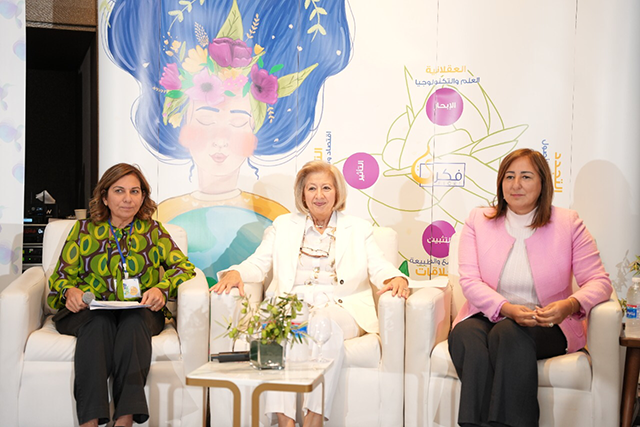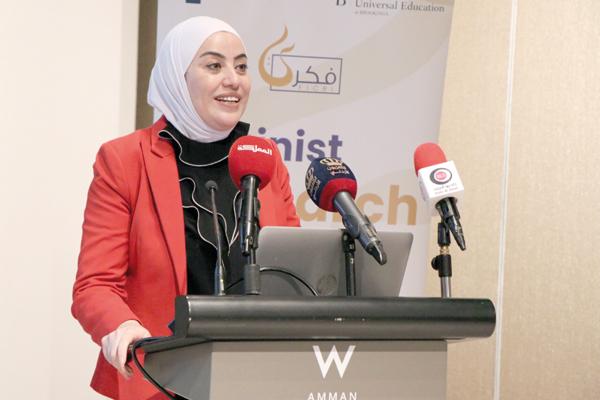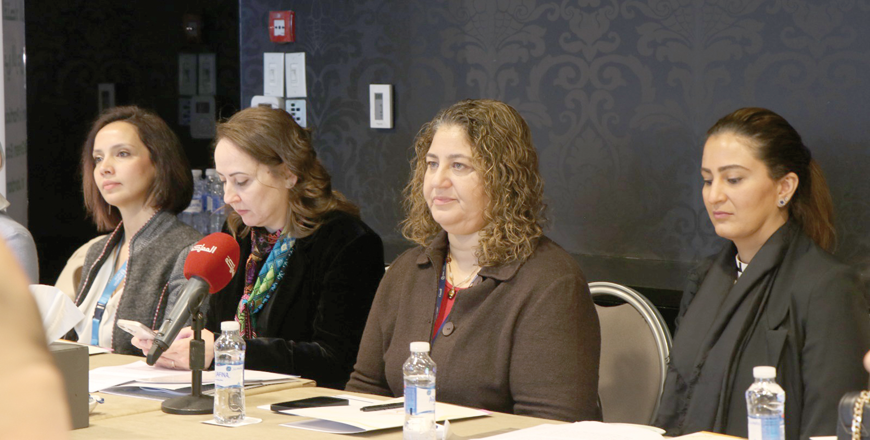You are here
Conference discusses inclusive feminist economics
By Maria Weldali - Sep 23,2022 - Last updated at Sep 23,2022

Culture Minister Haifa Najjar during a conference titled 'Inclusive Transition towards Feminist Green Economy' on Thursday (Photo courtesy of JoWomenomics)
AMMAN — Shared responsibility for Jordan is key to building a culture of peace, said Culture Minister Haifa Najjar on Wednesday.
Najjar’s remarks came during a JoWomenomics conference titled “Inclusive Transition towards Feminist Green Economy” which was organised by the Feminist Integral Centre for Research and Innovation (FICRI), on the occasion of the International Day of Peace, observed annually on September 21.
The minister spoke about feminist economics and the key role of women in driving economic operations in the Kingdom.
The minister also referred to the importance of “social responsibility in promoting peace and socio-cultural developments”.
Founder of JoWomenomics Mayyada Abu Jaber, in her address to the conference, highlighted the concept of inclusive feminist economics based on four main perspectives: Research studies, policies, communal assets and environmental conservation.
“A woman, like the environment gives life…and both do not have voices, at least in a number of societies… leading to societal and ecological imbalances,” said Abu Jaber.
Lower House member Asma’a Rawahnah pointed out the importance of women in a society’s awareness of various topics, adding that women who are physically, mentally and economically healthy benefit society.
The healthier a woman is, the more sustainable security will be, she added.
Regarding feminist politics, MP Dina Al Bashir said that a dialogue concerning women’s issues is also supported by many male members of the Lower House.
“Today we have 16 female members. However we aspire to have female representation at a rate of over 10 per cent,” according to Bashir.
The conference, which featured three dialogue sessions, also covered topics related to the importance of reviving cultural traditions and customs which support the idea of feminist economics.
Related Articles
AMMAN — JoWomenomics, through the Feminist Integral Centre for Research and Innovation (FICRI), on Tuesday held a session to discuss the pos
AMMAN — Minister of Labour Nadia Rawabdeh said on Thursday that the support of women’s inclusion in all economic sectors is a necessity for
AMMAN — Despite the rapid growth of Jordan’s green economy, women remain significantly underrepresented in sustainability-focused jobs, part
















